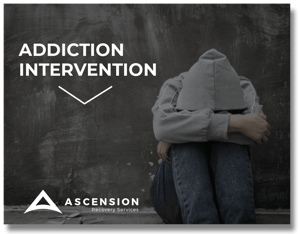When your loved one suffers from substance use disorder (SUD), you may feel helpless.
Often, families with loved ones who are struggling from SUD feel that they have tried all of their options to help their loved one. Families have attempted to control their loved one’s drug/alcohol consumption; talked with their loved one about their use, kicked them out of the house, let them back into the home in an effort to control their environment, previous detox/treatment attempts, rescued them from legal or other financial issues, drug screening, fractured family meetings, google searches, religious involvement, tough love and monitored their movements, just to name a few.
Ascension specializes in these difficult circumstances where all other efforts have failed and provides families with a proven pathway towards wellness for the entire family. It’s not unusual for physical, emotional and financial resources to have run dry. Even with persistent efforts, things are just not getting better.
It may be hard to come to terms with the idea that you alone can’t help your loved one, but our knowledgeable and experienced addiction professional staff can help you start the recovery conversation with a structured and controlled intervention. Keep reading to learn more about what an intervention is, how it is conducted, when it is needed and more.








